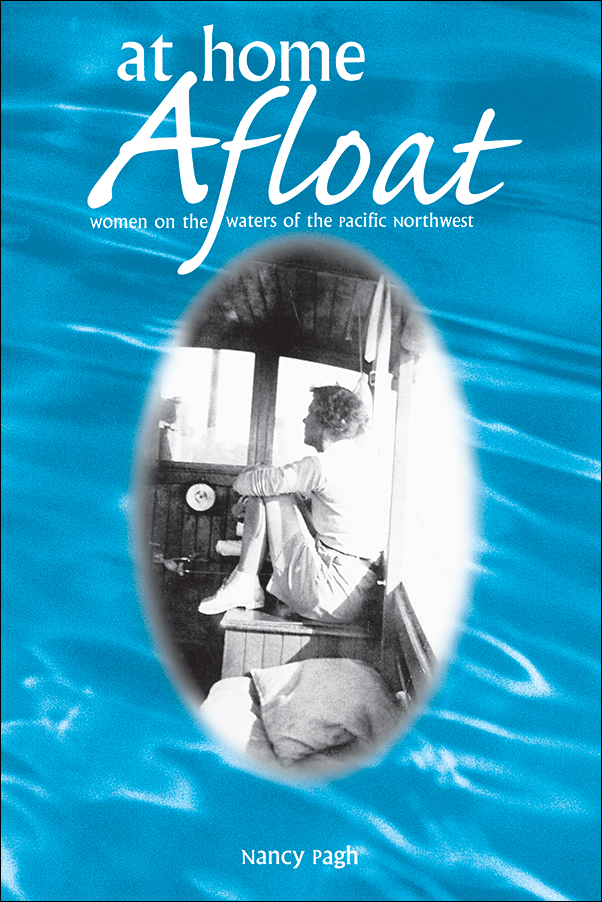
At Home Afloat: Women on the Waters of the Pacific Northwest
Nancy Pagh
$24.95 CAD / $24.95 USD (S)
198 pages, 17 illustrations
6 x 9 inches
Paperback: 978-1-55238-028-4
Library PDF: 978-1-55238-288-2
March 2001
A highly original, well-theorized, and challenging recasting of marine history that examines the ways that gender influences the roles women play—and are allowed to play—at sea.
Considering accounts written by Northwest Coast marine tourists between 1861 and 1990, Nancy Pagh examines the ways that gender influences the roles women play at sea, the spaces they occupy on boats, and the language they use to describe their experiences, their natural surroundings, and their contact with Indigenous peoples.
Nancy Paugh, an accomplished marine tourist and scholar, offers an engaging text that makes fresh and relevant links between diverse areas of inquiry including Western Canadian Western Canadian and American history, feminist geography, post-colonial theory, and women and environments. She seamlessly integrates her own personal narrative into the text and beautifully evokes the complexity and singular qualities of Northwest Coast geography and ecology.
Nancy Pagh was born in Anacortes, Washington, and currently teaches at Western Washington University. She grew up travelling the San Juan Islands and the Canadian Gulf Islands by boat.
Illustrations
Acknowledgements
Map
Chapter One
Northwest Coast Marine Tourism: A Contextual History
Gender and Regional Identity
Cruising and Steam Beginnings
Steam Tourism
The Gas Engine and Recreational Boating
Homemaking Tourists
Chapter Two
Space for the Mate: Superstition, Ritual, and a Woman’s Place
Space and Gender Politics
Floating Worlds
Women and Cruising Literature
Women and Boating on the Northwest Coast
Three Pleasure Craft Accounts
Three Work Boat Accounts
Chapter Three
Imaginary Indians: Feminine Discourse and Colonialism Afloat
Theorizing Colonial Women’s Travel Writing
Contacts
Counterfeit Ladies
The Victorian Cult of the Home
At Home in the Company of Strangers
A Sea Change
Chapter Four
"Getting Our Dresses Wet." Women, Girls and the Natural Environment
me/Nature/Women
Indescribable Landscapes
Collectable Nature
"An Atavistic Female Instinct"
Daughters of the Coast
Bibliography
Index
Nancy Pagh has altered the course of nautical traditionalism with her book, At Home Afloat. Her exhaustive research produces a fascinating study of women’s written accounts of boat travel between 1861 and 1990. Pagh’s women writers provide accounts and striking details about Northwest coast travel—whether on pleasure crafts or work boats—that would otherwise not have existed. I especially enjoyed a section in chapter four, “Getting Our Dresses Wet,” in which Pagh initiates a discussion on girls as opposed to women in the marine environment. At Home Afloat is a lively, intelligent analysis of, if you will forgive the pun, heretofore uncharted waters.
—Lorna Hutchinson, Canadian Literature
Pagh was particularly effective in linking her own personal story—as mariner and scholar—with feminist geography, regional history and post-colonial theory. Voyage accounts can be tedious and disappointing unless discourse analysis is used, and Pagh has mined them with exemplary insight. Every subtle, well-theorized, coolly argued page is a delight. The work is a mistress-piece of lean and personable prose. It will set the precedent for all future books on the social/spatial place of women at sea.
—Jo Stanley, Gender & History
This is a very original book. No one has looked at the material Paugh explores; her primary background reading is terrific. But more impressive is the way she moves beyond merely introducing her reader to a series of interesting women and texts.
—Melody Graulich, editor, Western American Literature
We are so accustomed to thinking only of ‘the men who go down to sea in ships’ that we have overlooked the very different experiences of seagoing women. Nancy Paugh’s book corrects our vision, showing how the stud of women afloat in Pacific Northwest waters reveals the gendered nature of seafaring.
—Sue Armitage, Editor Frontiers